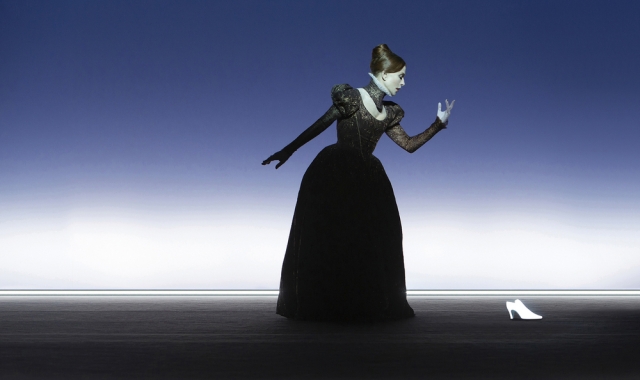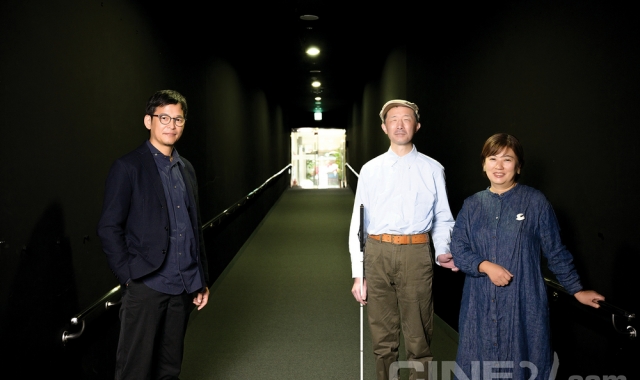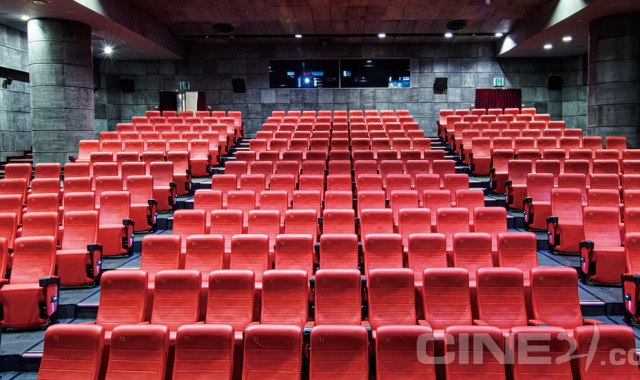
이따금 한 나라의 영화가 일어서서 과거를 벗어던지고 “난 더이상 두렵지 않아!”라고 선언할 때가 있다. 지난 6개월 동안 SF패러디물, 히틀러의 마지막 나날들을 다룬 영화, 그리고 유대인 장례식을 배경으로 한 코미디가 결합해 독일영화가 드디어 목에 힘을 줄 수 있게 됐다. 그리 많은 사람들이 이를 알아본 건 아니다. 독일 인구는 8천만명이 넘어 유럽국가 중 인구가 가장 많다. 또한 극장상영 차원에서는 세계의 가장 큰 영화시장 중 하나다. 그렇지만 국제적인 수준에서 자국 산업이 핀란드 정도의 가시성을 지닌다.
30년대 초까지 독일은 예술적인 수준이나 경제적인 측면으로도 세계영화의 선도자였다. 프리츠 랑과 F.W. 무르나우와 같은 영화인들, 우파(Ufa) 같은 스튜디오들, 그리고 독일 표현주의와 같은 스타일들이 할리우드만큼이나 멀리 떨어진 업계들에 영향을 주게 됐었는데, 이는 나치들이 떠오르면서 이 나라의 재능인들이 피난하여 더더욱 그랬다. 제2차 세계대전 직후, 그리고 1950년대 “독일의 기적”이라 불린 독일의 놀라운 경제 복원이 있는 동안 독일영화는 다시 번영했다. 스타 체계 전체가 새롭게 발전했고, 헬무트 코이트너와 같은 감독들이 신선함과 독창성을 갖고 주류 영화계에서 일했다.
그러나 독일 밖에 있는 그 누구도- 오스트리아나 스위스에 있는 독일어를 하는 사람들 빼고- 그 영화들을 보는 데 관심을 갖지 않았다. 프랑스 뉴웨이브가 지쳐 나가떨어지거나 더 볼품없어지고 시니컬한 70년대에 이르러서야 독일영화는 라이너 베르너 파스빈더, 베르너 헤르초크와 빔 벤더스의 엄하게 절제 된 열정의 영화들로 마침내 국제 틈새를 발견했다.
그렇지만 그러는 동안 상업부문이 죽어가고 있었다. 90년대 중반에서야 독일영화가- 한국의 것과 비슷하게- 침체된 과거를 전복하고 모던한 주류영화 정체성을 재발견하기 시작했다. 새로운 세대의 독일인들은 딴사람들이야 어떻든 간에 보기에 재밌는 영화를 자국어로 보고 싶어한 것이다.
지난해에 최고조를 이뤄, <스타트랙>의 패러디 <우주선 서프라이즈>(Dreamship Surprise)가 거의 1천만 관객을 동원하여 독일영화 역사상 최고의 흥행작이 됐다. 스펙터클하게 만들어지고 캠프스러운 수준으로 유쾌하긴 하지만, 언어적 유머가 수치심 없이 자국 관객을 향한 것이고 아예 번역이 안 되는 농담들이 많다(이제껏 동아시아에서 일본, 싱가포르, 타이에만 팔렸다).
그러는 동안, 독일은 드디어 나치주의 과거를 갖고 씨름하고 있었다. <몰락>(Der Untergang)은 1945년 히틀러가 베를린 엄폐호에서 보낸 마지막 몇주를 강렬하게 극화한 것이다. 영화는 인간답게 표현하기 글렀다고 오래전부터 생각됐던 인물들을 인간답게 표현한다. 더 중요한 것은, 이 영화가 아카데미에서 독일의 공식 출품작이었다는 것이다. 아무것도 수상하진 못했지만, 출품됐다는 것 자체만으로도 독일 영화업계가 새로운 자신감을 가졌다는 것을 상징했다.
이제 자국 관객을 끌어들이고 있는 영화는 50여년 만에 처음 나온 독일의 유대인 코미디 <고 포 저커>(Go for Zucker)이다. 스위스 태생의 베를린 거주 배우 출신 다니 레비가 각본, 감독을 맡은 이 영화는 생기발랄하고 호감이 가는 코미디로, 유대인 장례식을 중점으로 두고 있는데 세계 다른 어느 곳에서도 사람들을 조금도 놀라게 하지 못할 것이다. 그렇지만 자기부정과 유대교 로비단체들로 여전히 기가 죽은 독일에선 작지만 굉장히 인기있는 혁명이 됐다. 레비 자신도 물론 유대인이라 그것도 도움이 된다.
Every now and then, a country's cinema stands up, shakes off the past, and proclaims, "I am not afraid any longer!" In the past six months, a scifi spoof, a film about Hitler's last days and a comedy set during a Jewish funeral have combined to make German cinema finally stand tall in the saddle.
Not that many people have noticed. Germany is Europe's most populous country, with over 80 million inhabitants. It is also one of the world's largest cinema markets, in exhibition terms. But at an international level, its own industry has about as much visibility as Finland's.
Until the early '30s, Germany was a world leader in cinema, on both an artistic and an economic level. Filmmakers like Fritz Lang and F.W. Murnau, studios like UfA, and styles like German Expressionism went on to influence industries as far away as Hollywood, especially as much of the country's talent fled with the rise of the Nazis.
During the immediate post-WW2 period, and the country's amazing economic reconstruction during the 1950s - dubbed "The German Miracle" - German cinema prospered again. A whole new star system developed and directors like Helmut K?tner worked with freshness and originality in mainstream cinema.
But no one outside Germany - apart from German speakers in Austria and Switzerland - was interested in watching it. Not until the French New Wave had exhausted itself, and the grungier, more cynical '70s arrived, did German cinema eventually discover an international niche with the ascetic, head-over-heart films of Rainer Werner Fassbinder, Werner Herzog and Wim Wenders.
But meanwhile, the commercial sector was dying. Only in the mid-'90s did German cinema - like South Korea's - start to overthrow its stagnant past and rediscover a modern, mainstream cinematic identity. A new generation of Germans wanted to see watchable movies in their own language, even if no one else did.
The apex came last year, when a "Star Trek" spoof, "Dreamship Surprise: Period 1," became the most successful German film ever, with almost 10 million admissions. Though spectacularly made and entertaining on a camp level, its verbal humour is pitched unashamedly at local audiences, with many jokes that are simply untranslatable. (In East Asia, it's so far sold only to Japan, Singapore and Thailand.)
Meanwhile, Germany has finally been getting to grips with its Nazi past. "Downfall" is a powerful dramatisation of the final weeks of Hitler in his Berlin bunker in 1945. The film humanises characters long thought beyond humanisation; more importantly, it was Germany's official entry in the Academy Awards. It didn't win anything; but the mere fact of it being entered symbolised a new self-confidence by Germany's film industry.
Now, the local film currently pulling in audiences is nothing less than "Go for Zucker," the country's first Jewish comedy in over 50 years. Written and directed by Swiss-born, Berlin-based actor Dani Levy, it's a lively, good-natured comedy centred on a Jewish funeral that wouldn't raise an eyebrow if made anywhere else in the world.
But in Germany, which still remains cowed both by its own self-denial and by Jewish lobby groups, it's a minor (but very popular) revolution that's proved very popular. Levy is, of course, Jewish himself, so that helps.
Now all we're waiting for is a Chinese movie about the Tiananmen Massacre, a Japanese one about the Rape of Nanjing...and maybe a Korean one about the White Terror of the '50 and '60s.
ends






